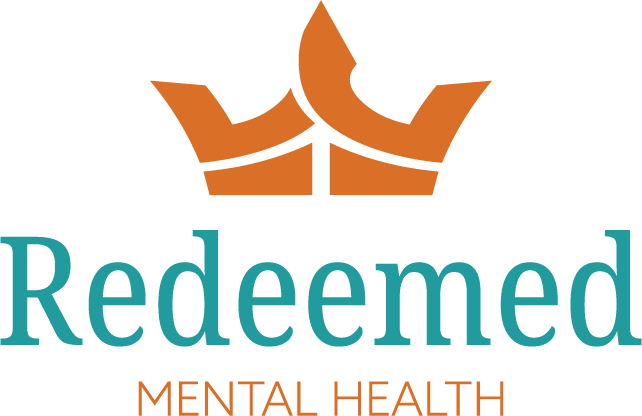 If you’ve been diagnosed with depression, getting treatment is very likely to be an ongoing part of your life. That’s so much true that many people benefit from inpatient stays in clinics for rehab treatment and care. That stint in full time treatment gives you a baseline to build life skills and to learn how to manage your disorder. However, over time, you might need more and ongoing support.
If you’ve been diagnosed with depression, getting treatment is very likely to be an ongoing part of your life. That’s so much true that many people benefit from inpatient stays in clinics for rehab treatment and care. That stint in full time treatment gives you a baseline to build life skills and to learn how to manage your disorder. However, over time, you might need more and ongoing support.
Outpatient treatment is ideal for that because you can stay at home, continue your daily life and responsibilities, and fit treatment into your life instead of the other way around.
Outpatient treatment is typically 5 days per week and up to three hours per day. Here, you’ll go to treatment in the evening after work or during the day, while kids are in school. You might also opt for treatment on the weekends or in the morning before the rest of your day starts. In any case, you’ll get treatment for your depression without having to give up on the rest of your life. Mental health treatment is normal and it should be. 12.7 million U.S. adults received mental health assistance for things like depression and anxiety in 2022. If you need help, it’s important to ask. Whether you need that or not should almost always be decided by a doctor. However, some signs that you will benefit from it include:
You’re Struggling
If you’re having trouble with your day-to-day life, you probably need help. That’s true whether you’re withdrawing from the things you love, you’re having trouble keeping up with routines, you’re dropping out of social life, or you feel bad. Even persistent feelings that things are off or wrong are a good sign to reach out and talk to your doctor and to potentially get help.
You should never have a hard time keeping up. You should always feel like you have the tools to manage your life and the things in it. And, while emergencies happen, the norm should be that you have a handle on things. If that doesn’t feel like it’s the case, reaching out and looking into treatment and help is an important thing.
That’s also true if the issue is that you’re “just” feeling stressed or tense all of the time. A lot of people experience expression as fatigue. Others experience it as stress or feelings of tension or that things are about to go wrong. These feelings are not normal, and you shouldn’t have to live with them all the time. You can get help and you can work on finding a solution.
 You’re Not Enjoying Things
You’re Not Enjoying Things
If you’re doing things you used to enjoy and are getting nothing out of it, it’s time to talk to a doctor about treatment. Depression means that your brain isn’t processing serotonin and dopamine correctly. That can mean feeling less enjoyment, less motivation, and more simple fatigue and tiredness. Either way, if you’re not doing things you love anymore, it’s a sign that things are deteriorating. And, that means things will get worse. Without positive things in your life and things you enjoy, you won’t have outlets or good things to look forward t. That will mean things will just keep getting worse. Therefore, it’s critical that you seek out depression treatment if things are that bad.
It’s okay to have a few down weeks. However, if things last more than a few weeks, you really want to make sure you’re getting help.
 Your Routines are Falling Apart
Your Routines are Falling Apart
If your routines are falling apart, it’s a good sign that you’re overwhelmed. Sometimes that can be because the routines are too much. In other cases, it can be because you are not doing well and you need help keeping up. This means that the first step is to step back, reduce your workload, find workarounds, and ensure that you have tools to get things done. That might mean talking to a professional and asking for help and insight. That’s especially true if you have family responsibilities that might push you towards doing more than you feel capable of. However, if you notice:
- Personal hygiene slipping, e.g., you don’t put the same effort into dressing up, you don’t brush your hair, you don’t get dressed, etc. It’s a good time to be concerned for yourself and to ask for help. Major changes in personal routine and hygiene are hugely important indicators of your mental health. Even small stuff like not being invested in dressing nicely when you used to be or feeling like tying your shoes is too much effort can be hugely important indicators of mental health.
- Slipping up on home routines like cleaning the house, putting away the dishes, or cooking. If you used to have a routine you could keep up with and now things are piling up, or you don’t know how to create a routine you can keep up with, it’s a very good sign that you might want professional help. It’s normal to have some trouble keeping up with dishes and other cleaning. It’s less so to have those tasks be overwhelming, for them to fall by the wayside for weeks at a time, or for some chores like laundry to just not happen until things are extremely bad.
- Dropping responsibilities at home, like childcare, cooking for yourself, spending time with your partner, etc. The more important the responsibility, the larger the red flag it is when you drop it. If you find you’re just not keeping up with things you need and want to do, it’s critical to ask for help – even if that means staying at an inpatient facility.
- Being late for work or failing other major responsibilities outside the home. If you’re not keeping up when social or financial pressure are involved, it’s a sign that you are having significant trouble and you should be getting help.
Letting things slip for a few days is okay. But, if things are falling behind for the longer term, you feel overwhelmed, too tired to manage, or just don’t care, it’s a very good sign that you badly need help.
 Trouble with Relationships
Trouble with Relationships
The worse you’re doing, the more your mood is going to go up and down, the harder of a time you’ll have handling your emotions, and the worse you’ll be at keeping up with social responsibilities. That often means your relationships with friends, family, and even partners will deteriorate. Here, it’s important to recognize that depression can actively sabotage your relationships. Having the tools to communicate that, to set expectations, and to manage your emotions will allow you to manage your relationships and to maintain them around depression. That’s important for you, your quality of life, and your ability to maintain those relationships. Often, it will mean going to treatment, getting relationship therapy, and learning skills to manage your life around depression.
Eventually, going to treatment is a normal and healthy thing. Even if you think you’re struggling, it’s a good idea to talk to your doctor, get insight from a professional, and get a handle on what your options are and how you can move forward.
Outpatient treatment for depression can be a great choice to allow you to get help and to get your depression under control without putting your life on hold – but you might also need more intensive care. It’s important to talk to a professional and ask for advice on what will work for you with your symptoms.
Redeemed Mental Health is a mental health & dual diagnosis treatment center offering PHP, IOP, and individual levels of care. Contact us today to begin your journey of recovery!

















